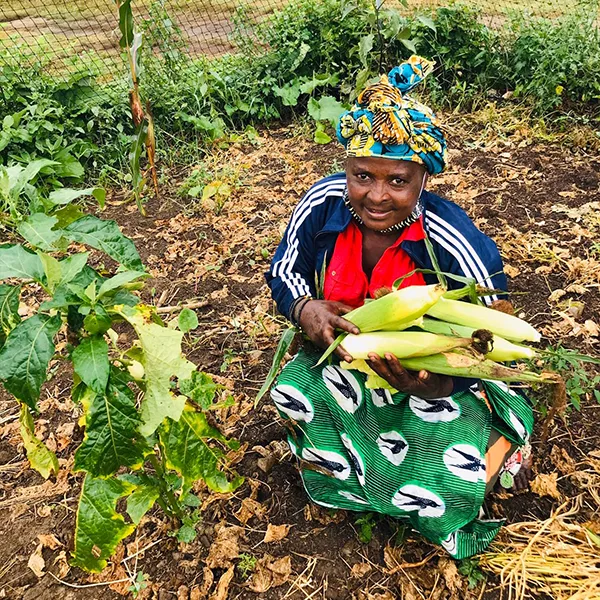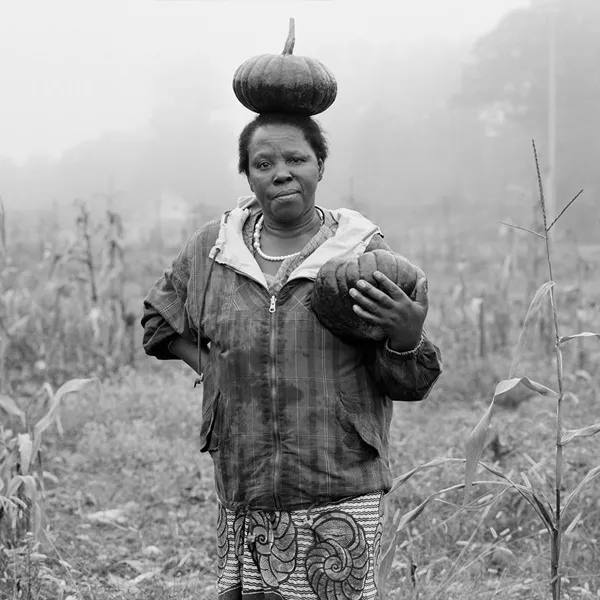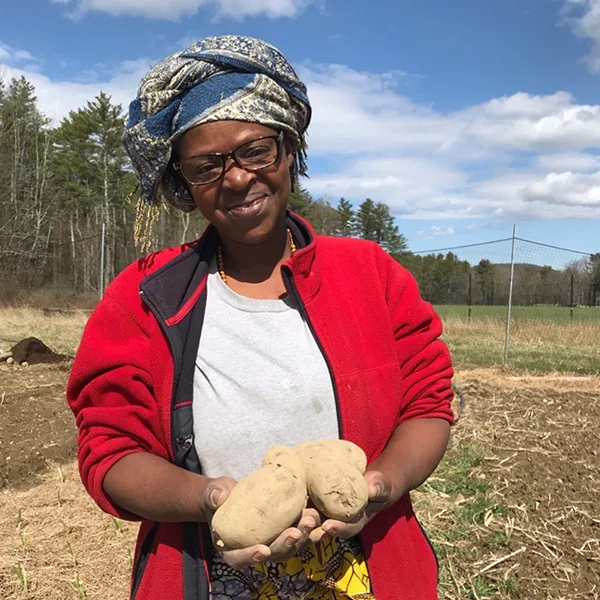In the scenic landscapes of Southern New Hampshire, Elizabeth Nyirabutega has cultivated not just a thriving farm, but a life filled with resilience and determination. Elizabeth’s journey is intertwined with The Double Up Food Bucks program, a symbiotic partnership with food stamps that has not only increased her income but has also transformed her lifestyle.
The Double Up Food Bucks program, allowing the purchase of local produce with an EBT card to get double the purchased produce, has been a game-changer for Elizabeth. This initiative has brought about a financial boon, evident in the regular checks she now receives every two weeks. For Elizabeth and her family, life has taken a positive turn.
ORIS-owned trusty tractor has been a blessing for Elizabeth, streamlining much of the arduous farming work. However, even with modern equipment, challenges persist. There are moments when the tractor falls short, and Elizabeth, alongside her hands and arms, steps in to ensure the job is done right.
Elizabeth’s farm is a haven for African vegetables rarely found in standard state markets. From amaranth to African eggplants, collard greens to daikon radishes, kale, carrots, corn, and eggplants, her diverse produce reflects a commitment to cultivating both tradition and health.
Farming, for Elizabeth, is not just a profession; it’s a way of life. Living with a disability that prevents her from enduring an 8-hour shift, she cherishes the autonomy that farming offers. “I like farming because you are your boss,” she shares. Flexibility in work hours allows her to take breaks when needed and return refreshed, or even head home whenever required if the day’s tasks are completed.
Beyond personal satisfaction, Elizabeth sees farming as an avenue to provide her family with healthy, organic, and fresh produce. Health issues further motivate her to grow food that suits her dietary needs. “I get fresh produce for home consumption; I even sell my produce to different markets here in Southern N.H,” she proudly asserts.
Elizabeth is a fixture at various farmers’ markets in New Hampshire, participating in the Concord Market on Saturday mornings and the Morning Start farmers markets every Tuesday and Friday afternoon. She collaborates with Fresh Start Food Hub, under the wing of the Organization for Refugee and Immigrant Success (ORIS). ORIS supports Elizabeth and 40 other farmers from diverse backgrounds, fostering a community that transcends borders.
For Elizabeth, farming is not just about sustenance but also about well-being. She views it as a form of exercise vital for a healthier life, echoing the encouragement of medical professionals.
Expressing gratitude for the support from ORIS, Elizabeth does face a challenge – deer intrusion that threatens her crops. To safeguard her livelihood and prevent potential contamination, she fervently requests a fence before the next farming season begins.
In Elizabeth Nyirabutega’s story, farming is more than a livelihood; it’s a testament to resilience, autonomy, and the ability to cultivate not just crops but a better life.




